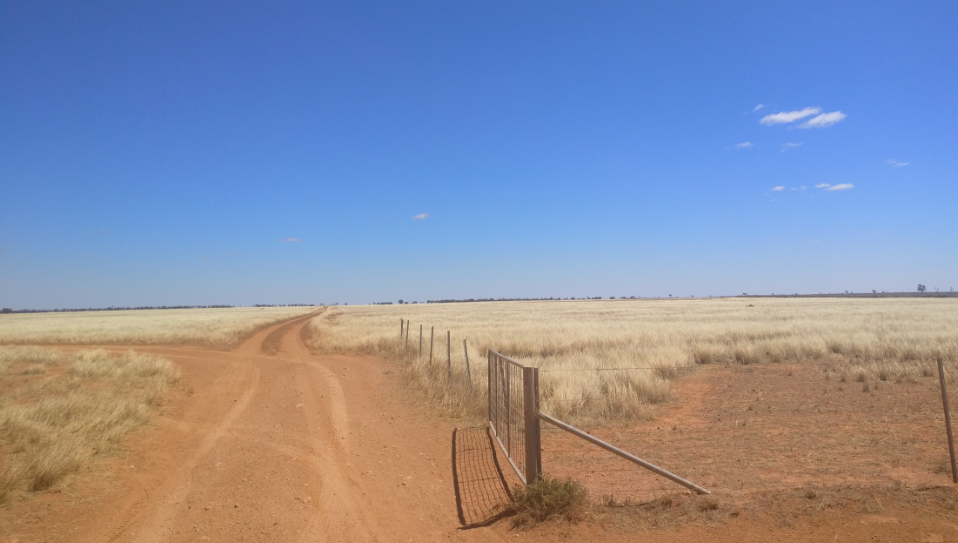While little more than some dusty paddocks interspersed with gravel roads, a site around 150km north-east of Adelaide is set to see one of Australia’s most ambitious large scale solar and storage projects developed. The Solar River Project is being developed by former Investec banker Jason May and lawyer Richard Winter.
The Solar River Project development company is based out of the University of Adelaide’s ThincLab accelerator. The University made the announcement today that the project had received planning approval from South Australia’s Minister for Planning.
“The Solar River Project is a 100% privately funded development which will create over 350 regional jobs in South Australia,” said project CEO May in a statement.
The project will carry a price tag of $450 million. The Solar River Project has revealed to pv magazine Australia that one binding and four additional offers have been made to purchase the equity in the project – with the founders to retain “a small share”. Three outright offers have been made to purchase the project outright, although that “is not our preference,” May noted. The project will have a 60/40 equity/debt split.
Jason May continued that a “binding offer” for an offtake agreement with an unamed electricity retailer has been received, for 28% of the project’s power output. 12% of its power will likely be sold under a corporate PPA – directly to an energy consumer under a Direct Sale of Energy agreement.
“The energy prices in South Australia are very high,” commented the Solar River Project’s May. “The project offers healthy returns to investors even with a conservative revenue model. The dramatic reduction in PV and Battery costs will see many (PV Baseload) type projects developed in the coming years.
“Our bank consortium (debt) are happy with 60% merchant, 40% PPA. This is very good news for the industry reducing the reliance on PPA’s traditionally required to support major projects of this nature.”
Solar River could connect to the incoming South Australian government’s planned high-voltage interconnector with Victoria – in which case it could be expanded. The project is reported to have the support of the state government.
3km of module rows are planned to be installed at the site, with a capacity of 200 MW. The PV will be coupled with a 120 MWh battery at the site – to deliver “affordable, reliable, solar energy”, the project proponents have announced. Chinese modules will likely be deployed at the site, with battery technology currently under assessment.
A statement announcing the EPC is expected to be announced next week.
The Solar River Project will incorporate aboriginal heritage, sports and local flora, fauna protection programs. A regional heritage fund and a Ngadjuri Nation Aboriginal Corporation Heritage Agreement has been established to achieve these aims.
A report in the Adelaide Advertiser quotes Winter as saying that “binding contracts” have been signed with an equity partner for the project, with the debt financing negotiations “in advanced stages.”
“We have put everything we have into it, many millions,” Winter told the Advertiser. “We are not going cap in hand for handouts.”
The project’s website points to the offtake agreement having been reached in December 2017. It also reports that it signed a connection agreement with a connection agreement with ElectraNet next month.
Construction is scheduled to begin in Q1 2019, with first generation in Q4 of that year.
Project partners are listed as Frazer-Nash Consultancy, Blackwood Heritage Consulting, Nature Foundation SA and Kleinfelder Australia.
This content is protected by copyright and may not be reused. If you want to cooperate with us and would like to reuse some of our content, please contact: editors@pv-magazine.com.









By submitting this form you agree to pv magazine using your data for the purposes of publishing your comment.
Your personal data will only be disclosed or otherwise transmitted to third parties for the purposes of spam filtering or if this is necessary for technical maintenance of the website. Any other transfer to third parties will not take place unless this is justified on the basis of applicable data protection regulations or if pv magazine is legally obliged to do so.
You may revoke this consent at any time with effect for the future, in which case your personal data will be deleted immediately. Otherwise, your data will be deleted if pv magazine has processed your request or the purpose of data storage is fulfilled.
Further information on data privacy can be found in our Data Protection Policy.